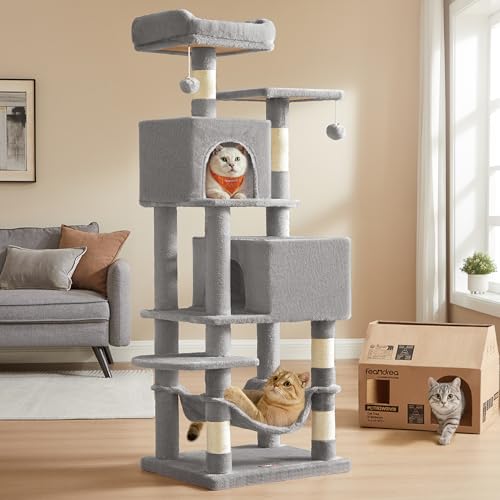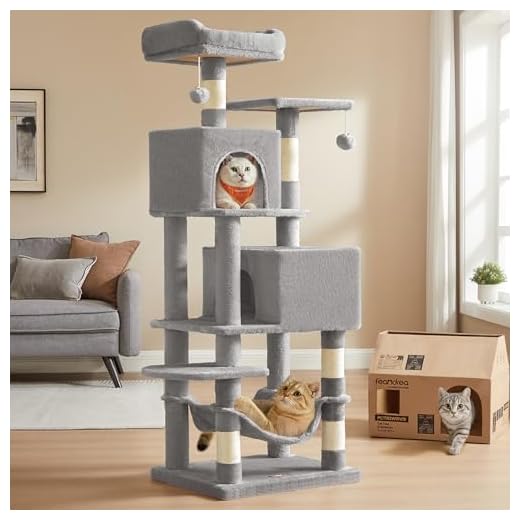



First, I recommend creating a designated space for me. A cozy cat tree or a sunny windowsill can serve as a perfect alternative. Cats love heights, and providing an appropriate perch will help satisfy that urge without involving the dining area.
Next, utilize double-sided tape on surfaces that are particularly tempting. The sticky feeling on my paws is not pleasant, and it quickly discourages me from hopping up there. This simple trick can work wonders for keeping me grounded.
Moreover, using citrus scents can be quite effective. Spraying a diluted citrus solution around the area creates an aroma that many felines find unappealing. This natural deterrent encourages me to stay away from the table without any harsh chemicals.
Lastly, consistent training is key. Offering treats and praise when I choose my designated area can reinforce positive behavior. With patience and persistence, my humans can guide me toward a more appropriate lounging location.
Effective Strategies for Keeping Surfaces Clear
Using double-sided tape on surfaces creates an unwelcoming texture. The sticky feeling discourages any exploration. It’s an easy solution that can be removed without leaving any trace.
Provide Alternative High Spots
Install cat trees or shelves to offer designated climbing areas. Placing these near windows or in sunny spots attracts attention away from unwanted places. Rewarding me with treats when I use these spots reinforces the behavior.
Utilize Deterring Scents
Certain scents, like citrus or vinegar, repel many felines. Spraying diluted solutions in areas where I tend to wander can help keep me at bay. Make sure to test surfaces first to avoid damage.
Consistency is key. Repeating these actions helps establish boundaries and keeps my curiosity in check.
Understanding Why Felines Enjoy Elevated Surfaces
To deter the urge to ascend onto surfaces like countertops, it’s essential to comprehend the motivations behind this behavior. Here are specific reasons why I, Johnny, and my fellow furry companions are drawn to such heights:
- Curiosity: We are naturally inquisitive beings. Elevated spots offer a vantage point for observing surroundings, which is deeply embedded in our instincts.
- Safety and Security: High places provide a sense of protection. In the wild, being above ground can shield us from potential threats.
- Exploration: The desire to investigate is strong. Tables often hold various intriguing items, from food remnants to shiny objects that catch our attention.
- Territory: Marking territory is a natural behavior. Ascending to a higher location allows us to claim ownership of that space, signaling our presence to others.
- Comfort: Soft or warm surfaces on tables can provide a cozy spot for a nap. We seek out comfort in our environment.
Understanding these motivations can aid in redirecting our attention to more suitable areas, allowing for a harmonious living space.
Creating a Cat-Friendly Environment
Place scratching posts and climbing trees in accessible spots. I adore tall structures where I can observe my surroundings. Consider adding soft surfaces near these areas for comfort.
Utilize cozy hiding spots, like boxes or tunnels, to create safe zones. These hideaways offer a sense of security, making me less inclined to seek out higher ground on counters.
Interactive Play Areas
Set up interactive zones with toys that stimulate my hunting instincts. Wand toys, laser pointers, and balls can keep me entertained, redirecting my energy away from surfaces you want to protect.
Designated Dining Spaces
Establish a specific area for my meals and snacks. A consistent feeding spot helps me understand where to find food, reducing my interest in your dining area. Use elevated dishes to mimic natural feeding behavior, making it more appealing for me.
Maintain a clutter-free environment. A tidy space decreases distractions, allowing me to focus on my designated areas. Regularly rearranging furniture can also spark curiosity and exploration without involving forbidden surfaces.
Using Deterrents to Keep Felines Off Surfaces
To discourage my human from finding me on high places, I suggest trying double-sided tape. Placing strips on surfaces creates an uncomfortable sensation for my paws, making me think twice before exploring those areas.
Another option is citrus scents. I can’t stand the smell of oranges and lemons. Using citrus-scented sprays or placing peels around the space can effectively repel me and my curious nature.
Sound Deterrents
Noise can be a powerful tool. Using motion-activated devices that emit sounds when I approach can startle me, teaching me to avoid those spots. Just make sure it’s not too loud; I have sensitive ears!
Physical Barriers
Creating a physical barrier is also a great tactic. Placing objects like aluminum foil or crinkly mats on surfaces can make the area less appealing. The unfamiliar texture makes me think twice about stepping on it.
Training Techniques for Cats to Avoid Tables
Positive reinforcement works wonders. Reward me with treats or affection when I choose to stay on the floor. This reinforces good behavior and helps me understand that staying down is desirable.
Clicker training can be a game changer. Use a clicker to mark the moment I choose the right spot, followed by a treat. This clear communication lets me know what you expect.
Redirecting my energy is key. Provide engaging toys or a designated play area. Keeping me entertained elsewhere reduces the temptation to explore high surfaces.
Consistency is vital. Every family member needs to follow the same rules. If one person allows me on the counter, I’ll be confused about what’s acceptable.
Gradual desensitization helps too. Start by allowing me on the table only when supervised, then gradually increase the time I spend on the floor. This gives me a chance to adjust to the new expectations.
Utilize positive associations with alternative spots. Make a cozy perch or cat tree appealing with soft bedding and toys. I’ll be more inclined to use these instead of climbing onto surfaces meant for you.
Limit access during training sessions. Close doors or use baby gates to prevent me from reaching forbidden areas while I learn the new rules.
Providing Alternative Surfaces for Feline Friends
Offering appealing surfaces can redirect interest away from high countertops. Here are some effective options:
- Cat Trees: Invest in multi-level cat trees equipped with perches and scratching posts. This satisfies climbing instincts and provides a designated play area.
- Window Perches: Install window hammocks to let them enjoy the view. Sunbathing spots keep them entertained while staying off dining surfaces.
- Soft Beds: Create cozy nooks with various types of beds. A cat bed for large cats can cater to larger breeds, ensuring comfort and a sense of security.
- Interactive Toys: Utilize puzzle toys and treat dispensers to engage their minds. Mental stimulation can reduce the urge to seek out less appropriate surfaces.
- Designated Play Areas: Set aside specific zones with their favorite toys and scratching posts. This encourages playtime in approved locations.
Redirecting focus to these alternatives not only enriches their environment but also minimizes the allure of forbidden spaces. It’s all about making the right choices for a harmonious home.
Establishing Consistent Rules for Furniture Access
Ensure everyone at home agrees on the no-access policy for specific surfaces. Consistency is key; if one person allows me to explore countertops while another enforces restrictions, confusion arises. I thrive on clear boundaries.
Designate specific areas where I can roam freely, like cat trees or cozy spots on the floor. This clarity helps me understand where I’m welcome and where I’m not. Reinforce these spaces with my favorite toys or treats.
Regularly communicate these rules to all household members. If a visitor disregards the established guidelines, gently remind them. It’s crucial for maintaining a harmonious environment where everyone knows the expectations.
Don’t forget to reward me for adhering to the rules. A simple treat or praise goes a long way in reinforcing positive behavior. This makes it easier for me to remember what’s off-limits.
For those moments of temptation, consider distractions. My attention can be easily diverted with interactive toys or engaging activities, keeping me away from restricted areas.
Lastly, if you’re looking for tools to help manage your space, check out the best tire air compressor for garage. It might just inspire some creative solutions to keep me engaged without straying onto surfaces I shouldn’t.
Monitoring and Adjusting Your Approach
Regularly assess your strategies to keep surfaces clear. Observe my behavior and adjust methods based on what works best. If certain deterrents are ignored, try alternatives or modify their intensity. Consistency is key, so maintain a routine while being flexible to change tactics when necessary.
Behavior Tracking
Documenting my actions can be helpful. Keep a log of instances where I venture onto prohibited areas. Note the time of day, environmental factors, and any possible triggers. This data can reveal patterns and inform adjustments in your approach.
| Observation | Action Taken | Outcome |
|---|---|---|
| Jumping after meals | Change feeding location | Reduced interest in surfaces |
| Ignoring deterrents | Introduce new distractions | Increased engagement with alternatives |
| Frequent jumps at night | Limit access during quiet hours | Less activity during late hours |
Feedback Loop
Engage in a feedback loop with me. If I respond positively to certain changes, reinforce those actions. Conversely, if a method fails, don’t hesitate to experiment with different solutions. Communication, even non-verbal, plays a significant role in our relationship. Your reactions guide me, so be aware of how I interpret your responses.










